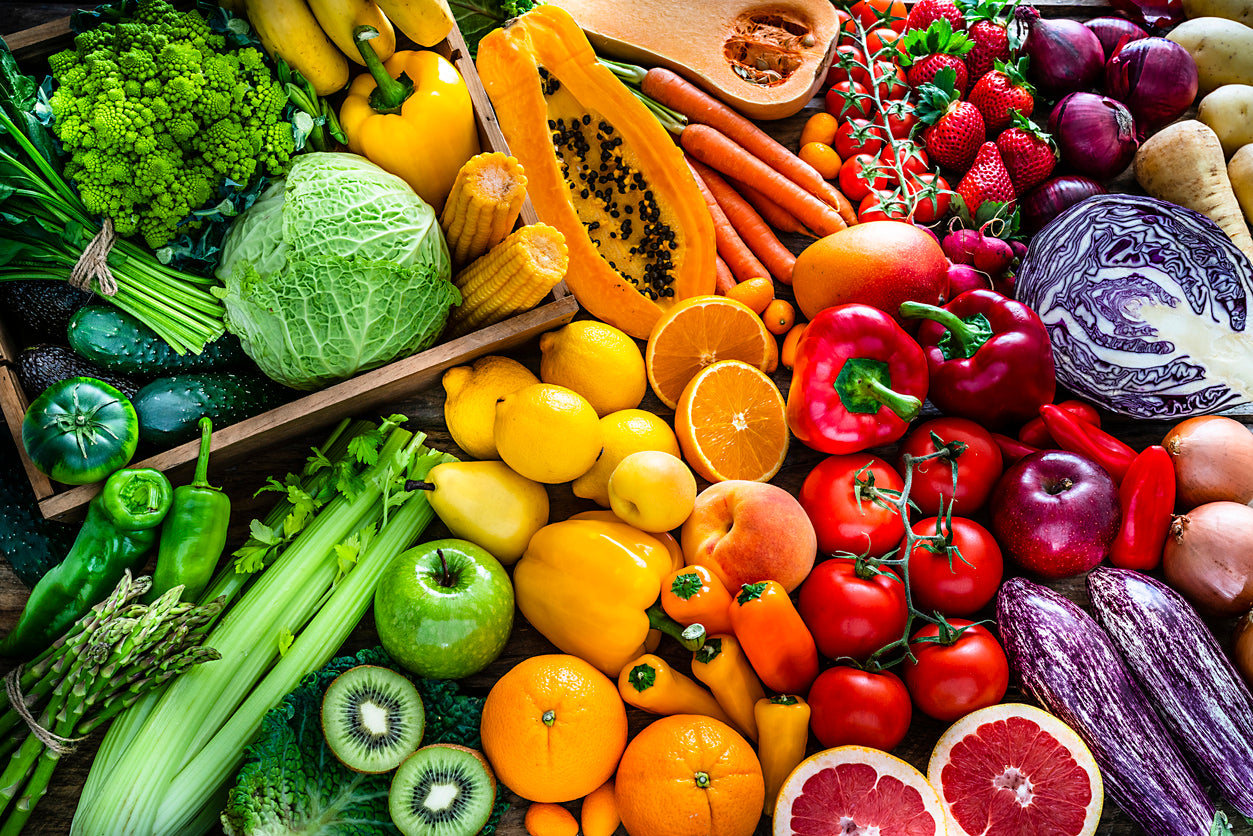
I firmly believe that ‘We are what we eat’.
From a nutritional perspective, dietary factors that support skin health are also, unsurprisingly, supportive of your overall health and wellbeing! Here are a few general recommendations:
1. Keep hydrated
Aim for between 8-10 glasses of fluid, preferably from water, intake per day. Water is required for almost all body functions, carry’s nutrients and oxygen to the cells, helps eliminate wastes, supports the maintenance of cell integrity and moisturises the skin to maintain its texture and appearance.
2. Avoid pro-inflammatory foods!
This includes foods high in sugar and refined carbohydrates, foods high in saturated fats, soft drinks, excessive alcohol, red meat and processed meats and trans-fats and oils. Pro-inflammatory food chemicals impact the health and appearance of the skin through negative effects on cell integrity, oxidative stress, glycation of collagen fibres and impaired skin healing.
3. Make your plate a rainbow.
Increase your dietary intake and eat a variety of plant-based foods that includes fruits, vegetables, whole grains, nuts, seeds, legumes and pulses. These foods are packed with vitamins, minerals, mono-unsaturated fats, bio-flavonoids, plant sterols, polyphenols, essential fatty acids, antioxidants and fibre. These micronutrients offer a range of skin protective and anti-ageing actions such as reducing oxidative stress and inflammation. Some of the key foods that support skin health include green tea (high in polyphenols), walnuts (omega -3 fatty acids), dark, green leafy vegetables and orange coloured fruits and vegetables (carotenoids), fruits and vegetables (vitamin C), nuts and seeds (vitamin E and zinc). A great way to inject some variety into your diet is to visit your local farmer's market and pick up different, in season, vegetables and fruits.
4. Include high quality protein.
Such as fish, lean white meat, low fat dairy, eggs, soy protein, legumes and pulses to support structural tissue integrity.
5. Regularly consume omega-6 and omega-3 rich foods.
Such as walnuts, flax seeds and salmon to support components of skin structure, maintenance, wound healing and provide potent anti-inflammatory actions.
To summarise, you are encouraged to adopt a varied, nutrient dense, whole food diet to maximise your dietary intake of all the key macro and micro nutrients that support healthy skin. Apart from the positive skin-health enhancing actions, these recommendations form the foundation for a healthy, balanced diet.
Jacqui Gaibor
MChir, GradDipNutr, BMedSc, DipNutr, DipBotMed